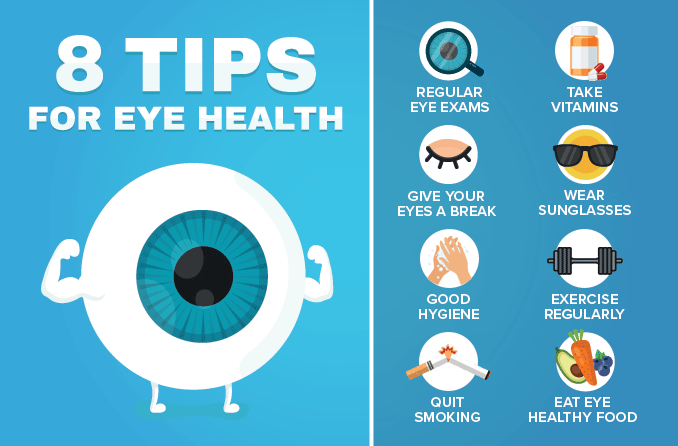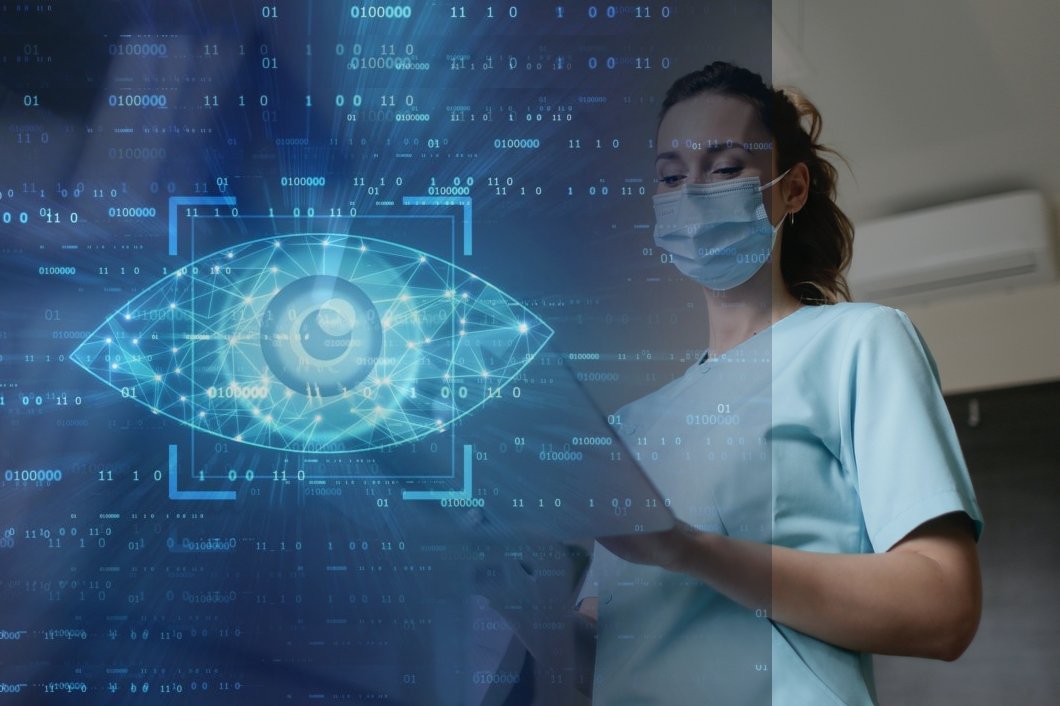Vision Gesundheit: Strategies for Healthy Eyes
The Importance of Regular Eye Exams
Regular eye exams are crucial for maintaining optimal eye health and ensuring proper vision. Many eye conditions can develop without noticeable symptoms, making routine check-ups vital for early detection and treatment. According to the American Optometric Association, comprehensive eye examinations should occur every one to two years, depending on individual risk factors. These exams help identify issues such as refractive errors, glaucoma, and cataracts at their nascent stages. A qualified eye care professional can provide tailored advice based on outcomes, ensuring your eyes stay healthy and vibrant.
How to Prepare for an Eye Exam
Preparing for your eye exam can enhance the quality of your experience. Here are some practical tips to consider: First, gather any previous prescriptions or medical records related to your vision. Next, note down any vision changes, eye discomfort, or questions you might have. Be sure to wear your glasses or contact lenses if you usually use them. Additionally, avoid excessive screen time the day before the appointment to minimize strain. All these steps ensure an efficient and beneficial eye exam experience.

Recognizing Eye Strain Symptoms
Understanding the symptoms of eye strain is essential, especially for those who frequently use digital devices. Common signs include dryness, fatigue, blurred vision, and headaches. These symptoms can often arise from prolonged screen time or inadequate lighting. Implementing good habits, such as the 20-20-20 rule—looking at something 20 feet away for at least 20 seconds every 20 minutes—can mitigate discomfort. Developing a routine will not only aid in managing symptoms but also promote overall eye health.
Nutrition for Optimal Eye Health
Your diet plays a critical role in maintaining healthy vision. Consuming a variety of nutrients such as vitamins A, C, and E, as well as omega-3 fatty acids, helps protect your eyes from age-related issues. Foods rich in lutein and zeaxanthin, like leafy greens, are crucial in filtering harmful blue light and protecting the retina. Consider incorporating these options into your meals for a practical approach to eye health and overall wellness.
Foods That Benefit Eye Health
Including specific foods in your diet can significantly enhance your eye health. Here’s a list of nutrient-rich options to consider: Spinach and kale are both excellent sources of lutein and zeaxanthin. Carrots, high in beta-carotene, support night vision. Fish such as salmon are rich in omega-3 fatty acids, which provide essential fats for maintaining retinal health. Nuts and seeds are also fantastic sources of vitamin E. Making these small adjustments in your meals can help you achieve better vision health.
Hydration and Eye Care
Staying hydrated is crucial for sustaining eye moisture and preventing dry eyes. Drinking adequate water throughout the day not only supports overall health but ensures that your eyes remain lubricated. When the body is dehydrated, it can lead to symptoms such as irritation and discomfort. Aim for an intake of at least 8 glasses of water daily, and consider adding hydrating foods like cucumbers and oranges to your diet.

Protecting Your Eyes
Protecting your eyes from harmful elements is essential in preserving vision health. Sunglasses are a fundamental tool in shielding your eyes from UV rays, which can lead to cataracts over time. Always opt for sunglasses that block 99% to 100% of UVA and UVB radiation. Moreover, it’s vital to wear protective eyewear while engaging in sports or working with power tools. Simple precautions like these can significantly reduce risks and encourage better long-term eye health.
Screen Time Management
Managing screen time is increasingly important in our digital world. The American Academy of Ophthalmology suggests that you follow the 20-20-20 rule, especially during extensive use of screens. This means every 20 minutes, divert your gaze to something 20 feet away for at least 20 seconds. Furthermore, ensuring that your computer screen is at eye level and maintaining a distance of about 20-24 inches can help minimize strain significantly. Adopting these strategies will alleviate discomfort and boost productivity.
Understanding the Role of Blue Light
Blue light emitted from screens can impact eye health, leading to discomfort and potentially disrupting sleep. Utilizing blue light-blocking glasses or applying blue light filters on your devices can reduce exposure during evening hours. Furthermore, incorporating breaks from screens will allow your eyes to rest from extended exposure. Such practical steps can help mitigate the effects of blue light and promote better overall eye health.
Common Eye Conditions and Their Prevention
Many common eye conditions, including cataracts and age-related macular degeneration (AMD), can occur as we age. Awareness of these conditions and embracing preventive measures, such as a healthy diet, quitting smoking, and regular eye exams, can greatly reduce risks. Maintaining awareness about genetic predispositions can also guide preventive strategies to safeguard vision health effectively.
Cataracts: Understanding and Prevention
Cataracts occur when the lens of the eye becomes cloudy, affecting the clarity of vision. Although age is the primary risk factor, lifestyle choices such as excessive sun exposure, smoking, and certain medical conditions can elevate risks. Regular check-ups can aid in early detection. As a proactive measure, consuming antioxidant-rich foods and wearing UV protective sunglasses can contribute to cataract prevention.
Age-Related Macular Degeneration (AMD)
AMD is a prevalent eye condition leading to vision loss, particularly in older adults. This condition affects the macula, the part of the retina responsible for sharp central vision. Risk factors include aging, family history, obesity, smoking, and prolonged sun exposure. Prevention strategies may include a nutrient-rich diet, regular exercise, and routine eye exams to catch any early signs. Staying informed is vital in managing risks associated with AMD.
Key Takeaways
- Routine eye exams are essential for maintaining health and catching issues early.
- A nutritious diet supports optimal eye function and protects against diseases.
- Protect your eyes with sunglasses and appropriate safety gear during activities.
- Monitoring screen time and blue light exposure can alleviate discomfort.
- Being proactive about common eye conditions enhances long-term vision health.
FAQ
1. What are the common symptoms of eye strain?
Common symptoms of eye strain include dryness, blurred vision, headaches, and fatigue. Frequent use of digital devices without adequate breaks can exacerbate these symptoms. Utilizing methods like the 20-20-20 rule can help reduce discomfort and promote better eye health.
2. How often should I have my eyes checked?
It is generally recommended to have your eyes checked every one to two years, depending on your age and any specific risk factors. For older adults or individuals with pre-existing conditions, more frequent visits may be necessary.
3. How can I prevent cataracts?
Preventing cataracts involves maintaining a healthy lifestyle, including a balanced diet rich in antioxidants, wearing UV-protective sunglasses, quitting smoking, and managing chronic conditions like diabetes. Regular eye exams can also aid in early detection and management.
4. What foods are beneficial for eye health?
Foods beneficial for eye health include dark leafy greens, carrots, fatty fish rich in omega-3 fatty acids, nuts, and citrus fruits. Incorporating these into your diet can provide essential nutrients that support vision and eye function.
5. Are blue light glasses effective?
Yes, blue light glasses can help filter out harmful blue light from screens, reducing strain and discomfort during extended device use. They can also help improve sleep quality when used in the evening by minimizing blue light exposure.
6. Can lifestyle modifications improve my eye health?
Absolutely! Lifestyle modifications, such as a healthier diet, regular exercise, proper hydration, and reducing screen time, can significantly improve your eye health. These changes may not only enhance your vision but also reduce the risk of developing eye diseases.
7. What should I do if I notice sudden changes in my vision?
If you experience sudden changes in your vision—such as blurriness, distortion, or loss of vision—seek immediate attention from an eye care professional. Early intervention can be crucial in preventing further complications and preserving vision.
